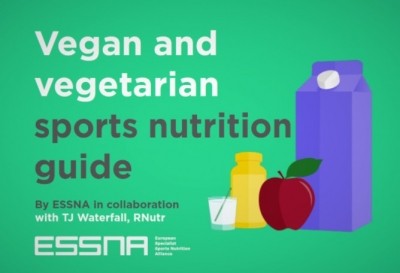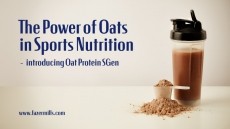ESSNA urges government to excuse sports nutrition products from anti-obesity drive

In response to impending legislation, the trade association for the European sports nutrition sector calls on lawmakers to better define HFSS products providing exemptions for foods intended for sportspeople.
ESSNA fears the Government may use the Nutrient Profile Model (NPM) in formulating plans, which could class sports nutrition products as having higher levels of certain nutrients that would subject them to certain restrictions.
“There is a serious gap in the upcoming regulation of HFSS products in the UK,” says Dr Adam Carey, Chair of ESSNA.
“At the moment, we do not know whether the Government’s proposal is based on the NPM, which looks at food composition while disregarding the specific purpose sports nutrition products serve.
“Blanket restrictions without appropriate exemptions and guidance for enforcers and businesses risk damaging a multitude of specialist food sectors, such as the sports nutrition industry, which play a key role in supporting the government objectives of a healthier, fitter Britain.”
Tackling childhood obesity
Last year, the government set out a strategy to tackle childhood obesity that includes making more healthier food options available to a greater number of the population.
Part of the plan involves empowering the consumer with nutritional information about the food, presented via front of pack nutritional labelling in an easy to understand format such as the voluntary ‘traffic light’ scheme.
Other initiatives include ending the promotion of HFSS foods by restricting ‘buy one get one free’ promotions and the placement of these foods in prominent locations both online and in physical stores.
Further actions by the government include setting up a public consultation at the end of 2020, in which ESSNA expressed its concerns about sports nutrition products potentially falling under the planned restrictions.
“Sports nutrition products are by no means identifiable as HFSS and are not targeted at children,” Dr Carey continues. “They are intended for adults leading active lifestyles.
“Sports nutrition products provide clear information and labelling to ensure that consumers have access to safe products and can make healthy, informed choices.
“The Government needs to provide adequate guidance to enforcement authorities in respect to the products that fall within the scope of the proposed legislation and clearly outline that specialist products, including high protein bars and carbohydrate-electrolyte drinks, should be exempt from HFSS restrictions.”
HFSS product ad ban
The government is set to publish its findings from the consultation in due course, which ended on the 22 February 2021 and involved feedback from views from businesses and enforcement bodies.
Meanwhile, the government is planning to push ahead with the banning of HFSS products being shown on TV and online before 9pm setting the end of 2022 as a deadline.
“ESSNA fully supports the UK Government’s goal to tackle obesity and improve people’s diets,” adds Dr Carey.
“For instance, our consumer education campaign which works to ensure consumers are well-informed on sports nutrition products, are purchasing and using products that are unique to their specific needs, and are staying safe, has been very successful since its launch in 2016.
“We urge the UK Government to acknowledge and support the contribution of sports nutrition industry on the promotion of healthy diets and active lifestyles.”















